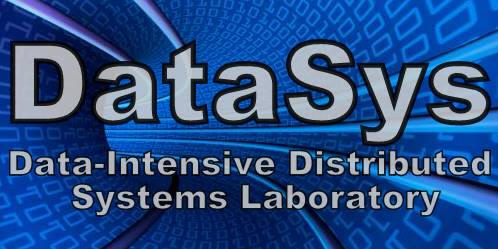Graph Data Management and Processing

Dr. Michael Grossniklaus
Department of Computer Science
Portland State University
Stuart Building 225
Monday, January 23rd, 2012
10:00AM-11:00AM
Slides
Abstract: Graph data is used in an increasing number of analytical data processing applications, ranging from social network analysis, to monitoring of network traffic, and to ontologies in the semantic web. Both application-specific and general graph data management systems have been proposed to address this trend. Nevertheless, it would be foolish to dismiss relational and object databases as possible solutions for graph data management and processing, due to the vast amount of experience that they encompass. As a consequence, graph data analysts are faced with a broad variety of choices and approaches. However, regardless of the approach taken, users need to be able to evaluate and assess which of the many possible solutions works best in their use case. In this talk, we have a look at how different application scenarios of graph data can be characterized and matched to suitable data management technologies. In order to do so, we define a benchmark in terms of a data model, query workload, sample data sets, and usage scenarios. We also report performance figures measured based on an open-source graph database as well as commercial relational and object databases.
Bio: Michael Grossniklaus is an SNSF-funded post-doc in Prof. David Maier's group at Portland State University, where he works on the project entitled Exploiting Object Database Technologies for Data Management in the Cloud. Michael's work is situated in the domain of information systems and his research focuses on developing innovative database technologies. Currently, he is investigating how to best address the requirements of emerging applications by extending object-oriented database systems with novel concepts. In response to context-aware applications, Michael has defined an object-oriented version model that supports context-dependent data management and query processing. To support the needs of today's web engineering where the need for context-awareness is particularly predominant, Michael has implemented a content management system that can be used as an platform for model-based approaches. This Extensible Content Management (XCM) system is built around the separation of content, structure, layout and view. Metadata about all four concepts is managed context-dependently leading to a very flexible and powerful system. At the moment XCM consists of a server component and a client graphical user interface. In 2005, XCM successfully served as the server back-end of EdFest mobile tourist information system at the annual Edinburgh festivals.
 Data-Intensive Distributed Systems Laboratory
Data-Intensive Distributed Systems Laboratory